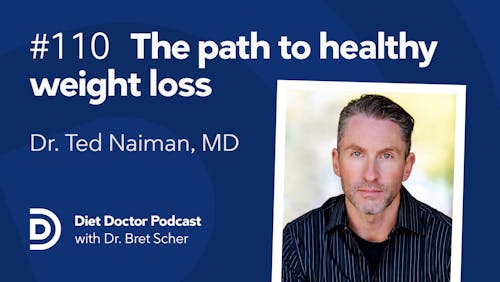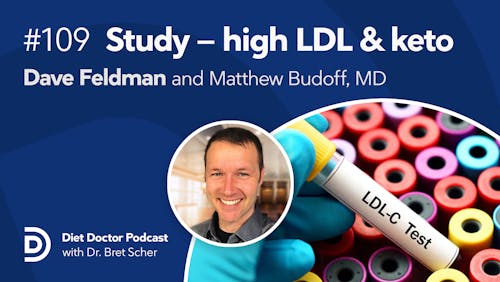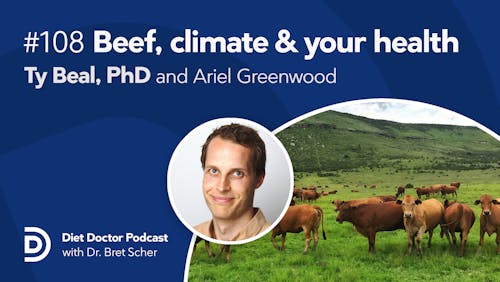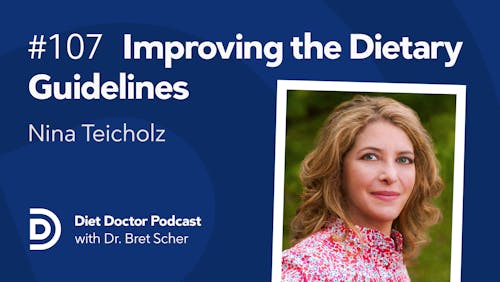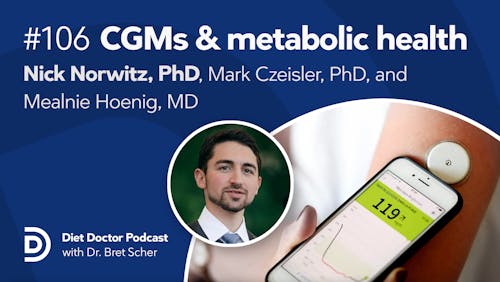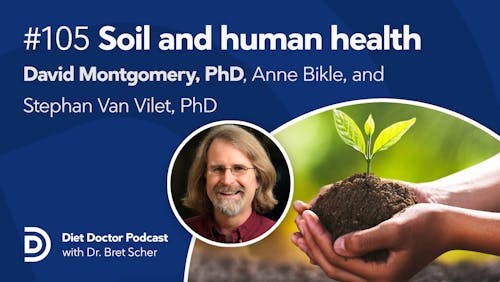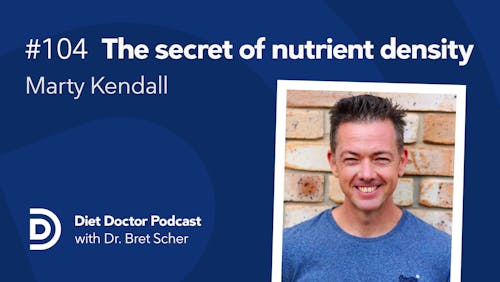Diet Doctor Podcast #76:
Protein leverage with Professors Raubenheimer and Simpson
Could our innate need for protein be driving the world-wide obesity epidemic? According to researchers Raubenheimer and Simpson, the answer is a resounding, “yes.” They have spent decades studying the eating patterns of locusts, bugs, rodents, and other animals and have consistently found that animals are “hardwired” to eat a set amount of protein – even if it means drastically over- or under-eating calories.
Professors Raubenheimer and Simpson have also applied this to research in humans, demonstrating that we are similarly hardwired to seek protein. But in our environment, surrounded by ultra-processed foods lacking protein, we tend to over eat nutrient-poor calories, which results in caloric overload, obesity, and poor metabolic health. Recognizing our biology is the first step in solving the problem, according to the professors.
And, if too little protein is bad, does that mean more is always better? Not so fast, say David and Steve. They have real concerns that eating too much protein worsens survival, as demonstrated in the bug and animal studies. But how does this apply to humans? The answer to this question is complicated. Listen to the podcast for a nuanced discussion.
About the video
Virtual podcast recorded in June 2021, published in July 2021.
Host: Dr. Bret Scher
Producer: Hari Dewang
Table of contents
00:00 Introduction
04:03 Protein leverage hypothesis in a nutshell
08:42 Why protein is the key appetite to prioritize
12:23 Why is it named the protein leverage hypothesis
20:52 A solution to satisfy the protein leverage
27:49 The benefit vs concern of more protein content
34:36 Overall health and lifespan
40:16 Different parameters that affect one’s protein leverage
47:55 Solution to the industrialized food problem
56:28 Last words from Prof. Simpson and Prof. Raubenheimer
Could our innate need for protein be driving the world-wide obesity epidemic? According to researchers Raubenheimer and Simpson, the answer is a resounding, “yes.” They have spent decades studying the eating patterns of locusts, bugs, rodents, and other animals and have consistently found that animals are “hardwired” to eat a set amount of protein – even if it means drastically over- or under-eating calories.
Professors Raubenheimer and Simpson have also applied this to research in humans, demonstrating that we are similarly hardwired to seek protein. But in our environment, surrounded by ultra-processed foods lacking protein, we tend to over eat nutrient-poor calories, which results in caloric overload, obesity, and poor metabolic health. Recognizing our biology is the first step in solving the problem, according to the professors.
And, if too little protein is bad, does that mean more is always better? Not so fast, say David and Steve. They have real concerns that eating too much protein worsens survival, as demonstrated in the bug and animal studies. But how does this apply to humans? The answer to this question is complicated. Listen to the podcast for a nuanced discussion.
About the video
Virtual podcast recorded in June 2021, published in July 2021.
Host: Dr. Bret Scher
Producer: Hari Dewang
